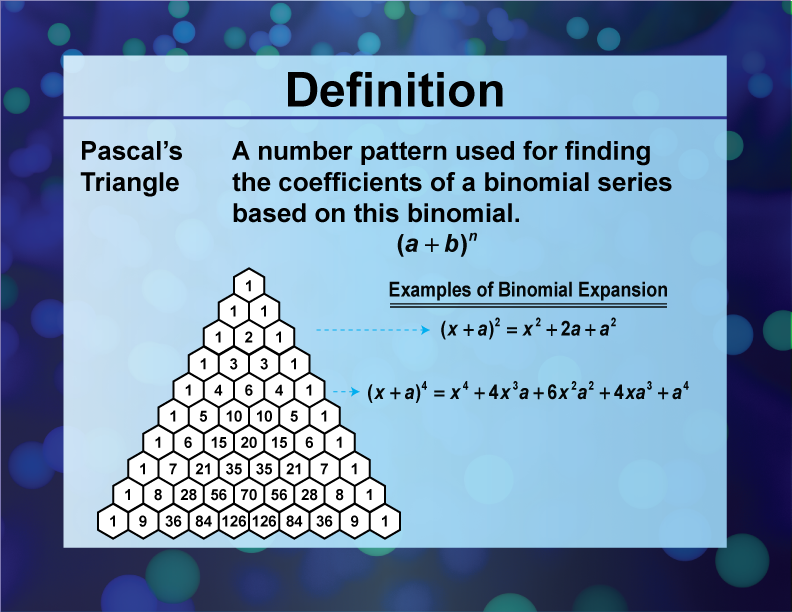
Display Title
Definition--Sequences and Series Concepts--Pascal's Triangle
Display Title
Pascal's Triangle

Topic
Sequences and Series
Definition
Pascal's Triangle is a triangular array of binomial coefficients.
Description
Pascal's Triangle is a fundamental concept in mathematics, representing a triangular array of binomial coefficients. This concept is essential in various mathematical and scientific applications, including combinatorics, algebra, and probability theory.
In real-world applications, Pascal's Triangle is used in probability calculations, particularly in binomial expansions and combinatorial problems. It is also used in computer science for algorithm design. Algebraically, the elements of Pascal's Triangle can be expressed as

where n is the row number and k is the position within the row.
Understanding Pascal's Triangle is crucial for math education as it helps students develop skills in recognizing and analyzing patterns in binomial coefficients. It provides a foundation for more advanced topics in algebra and combinatorics, and aids in developing problem-solving skills.
For a complete collection of terms related to sequences and series click on this link: Sequences and Series Collection
| Common Core Standards | CCSS.MATH.CONTENT.6.SP.B.4, CCSS.MATH.CONTENT.HSF.IF.A.3, CCSS.MATH.CONTENT.HSF.BF.A.2, CCSS.Math.CONTENT.HSF.LE.A.2 |
|---|---|
| Grade Range | 6 - 9 |
| Curriculum Nodes |
Algebra • Sequences and Series • Series |
| Copyright Year | 2021 |
| Keywords | data analysis, arithmetic sequence, common difference, definitions, glossary terms, geometric sequence, common ratio |